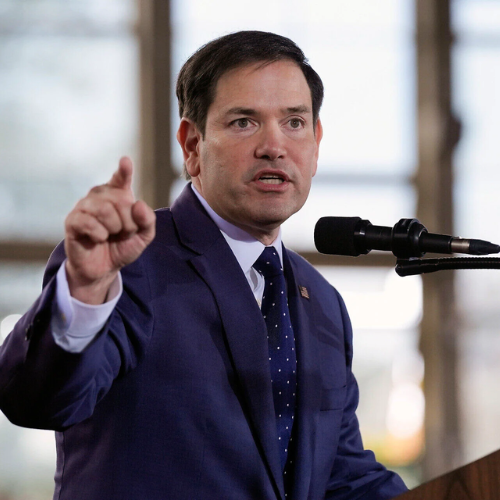The United States government has announced sanctions against four Cuban judicial officials because of their involvement in the detention of political dissident Luis Robles. U.S. Secretary of State Marco Rubio revealed on Wednesday that judges Gladys Maria Padrón Canals, Maria Elena Fornari Conde, Juan Sosa Orama, along with prosecutor Yanaisa Matos Legrá, will no longer be allowed to enter the United States.
The U.S. government says these sanctions are a response to what they describe as a “gross violation of human rights” connected to Robles’ arrest. According to Washington, these officials played an important role in carrying out unfair trials against Robles, who was peacefully protesting for freedom.
The Story of Luis Robles and His Arrest
Luis Robles was arrested in Havana in December 2020 after peacefully protesting with signs that read “Liberty” and “No more Repression.” Instead of respecting his right to protest, Cuban authorities charged him with “disobedience” and “enemy propaganda.” These charges have long been criticized by human rights organizations because they are often used to silence people who speak out against the government.
Secretary Rubio called Robles’ detention “arbitrary,” meaning it was unfair and without proper legal basis. He explained that the Cuban judges and prosecutors involved are not serving justice but are supporting a political system that punishes peaceful dissent. Rubio said these officials help the government carry out “sham legal processes” to stop people from exercising their freedom of expression.
Swiss Bank Moves to Shut Down Cuba Based Accounts
Robles remained in detention for over four years until January 2025, when he was finally released. His release came as part of a deal negotiated by the Vatican, which led to the freeing of more than 500 political prisoners. This agreement was part of a diplomatic effort involving the Biden administration.
Ongoing Tensions Over Human Rights and Freedoms
This latest round of U.S. sanctions highlights ongoing tensions between Washington and Havana, especially concerning human rights and political freedoms. The Biden administration has made it clear that defending human rights in Cuba is a priority, even as pressure grows internationally for the Cuban government to reform and respect basic freedoms.
Despite constitutional rights to protest included in Cuba’s 2019 constitution, the country has yet to pass a law clearly defining these rights. This legal delay leaves many activists and ordinary citizens vulnerable to arrest and harassment when they try to speak out or protest peacefully.
The Cuban government has not yet responded to the new sanctions. However, in the past, Cuban officials have accused the United States of trying to provoke unrest and encourage protests on the island.
By sanctioning judges Gladys Maria Padrón Canals, Maria Elena Fornari Conde, Juan Sosa Orama, and prosecutor Yanaisa Matos Legrá, the U.S. is trying to hold accountable those who help keep an unfair system in place. These officials are being punished for their part in suppressing peaceful protest and violating human rights.


